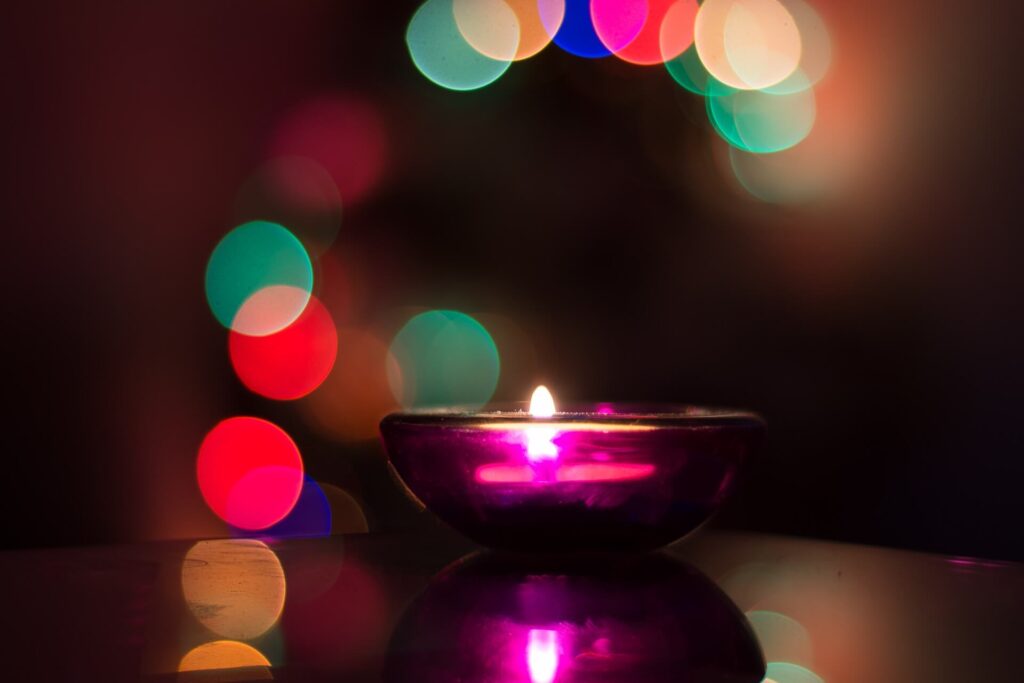Holiday Happiness
By: Sharon Burris-Brown LICSW, NBC-HWC
Holidays are supposed to be joyful, right? Unfortunately, not necessarily. Consider these common scenarios:
- You rush around to multiple homes hours away from each other for each holiday in order to satisfy all sides of the family.
- Pressure is placed on you–either from within or by others–to cook, decorate, do all the shopping, wrapping of and mailing out gifts for everyone in the family.
- Your tendency is to believe that you “should” be extra social and busy during holidays.
- You never feel the happiness and gratitude you think you should when holidays roll around.
- Self-care gets tossed off the priority list. You don’t have enough time to exercise and your plan to watch what you eat goes out the window.
- Finances are strained and shopping for gifts and travel can further tighten the strings.
- Perhaps you have no family with whom to celebrate and often end up feeling alone and sad.
- Holidays can bring up losses in your life from the deaths of loved ones or the end of a significant relationship.
- Look around and everyone seems to be full of joy, having fun, and with loved ones surrounding them. Holidays can exacerbate the tendency to compare yourself to others and to ratchet up that less-than feeling.
The Reality
In a 2014 survey, 64% of respondents who have mental illness reported feeling “a lot or somewhat worse” during the holidays.
Overall, about 62% of participants, even if they do not report having a mental illness, feel dissatisfied, financial stress, lonely, too pressured or have unrealistic expectations.
Holiday Loneliness/Holiday Stress
If you are already feeling alone in your life, holidays can amplify that emotion times ten. Loneliness may have been around forever, but more recently, researchers have called loneliness the new scourge. And it is truly pervasive.
45% of adults over 45 report chronic loneliness. Larger portions of people in this country are not married or living with others. Religious, community and club affiliations are down. The 2011 Census reports a 10% increase in individuals living alone.
Research shows that loneliness is particularly dangerous to one’s health and mortality. It is as significant a risk factor for dis-ease as smoking a half a pack of cigarettes a day.
Not enough engagement with others during the holiday season and too few joyful rituals can cause sadness and despondency.
On the other side, there can surely be too much people time and too many obligations. This tips the stress scale upwards when the balance of busyness, the shoulds, and being around others engulf scheduling down time and self-care.
A 2015 survey found that over 60% of individuals questioned were either somewhat or very stressed during the holidays. The biggest stressor were finances, but other stressors ran the gamut: too much to do, not enough rest, too much food and no time for exercise.
How to Stay Sane
So how do you counteract the persistent messages that you have to put on a joyful face during the holiday season? How to confront the belief that you need to be all things to all people?
What can you do to create meaningful connection to others during the holidays?
- Manage your own expectations. If you don’t start with your own, you will not be able to address others’ expectations of you. If you are someone who struggles with setting boundaries, first ask yourself who are you trying to please? What is the cost to you and your family?
- Carve out time for self-care. Put that high on your priority list. Schedule that in if you depend on a calendar. Get an accountability buddy to check in with.
- Connect to the Meaning of the Holiday. Don’t forget the deeper reasons for celebrating the holiday. If you are alone, consider volunteering. If you do not have family, try to gather together friends who are open to a friend-celebration. Create your own rituals that have meaning for you.
- Families Are Not Always Healthy. The truth is that some families are toxic, and yet there often is intense pressure to be with them during the holidays. If celebrating with toxic people is damaging to you, consider creating your own family—people who you know have your back and are positive influences in your life.
- Consider Taking a Social Media Holiday. If you tend to compare yourself to others, social media can sure help—and to your detriment. Those who use it are putting their best face forward. It is easy to believe that everyone else is having way more fun than you. But you really don’t know what is behind closed doors. Consider taking a break from the constant comparison competition. Focus on yourself, your interests, your activities and helping others if you can. You will be glad you did.
- You don’t have to be the one to do everything. As you determine your own energy and needs, and you decide what you can and cannot do, be prepared to ask others around you to pick up the slack. If they have not had to do anything before, they won’t automatically know what you want from them.
- What Can You Say “No” to? Along with delegating, ask yourself what things can you let go of? Do you need to be the holiday party parent at your child’s school the 4th year in a row? Can you decide to only go to one place for Thanksgiving rather than two or three? Instead, consider choosing rotating holidays. Or, decide to celebrate at your home rather than travel.
There are definite strategies to savor the holidays without feeling like you have to empty your energy and emotional buckets to do it. Take a breath and think about the deeper meaning and values that these holidays reflect and act in alignment with them. When values and actions align, the rest falls into place.
Articles
- https://www.nami.org/Press-Media/Press-Releases/2014/Mental-health-and-the-holiday-blues
- https://academic.oup.com/ppar/article/27/4/127/4782506
- https://www.hrsa.gov/enews/past-issues/2019/january-17/loneliness-epidemic
- https://www.healthline.com/health-news/what-stresses-us-most-at-the-holidays-113015#

